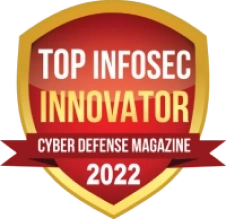What is Advanced Endpoint Protection (AEP)?
Advanced Endpoint Protection (AEP) is a next-generation security solution designed to safeguard endpoints such as desktops, laptops, mobile devices, and servers from sophisticated cyber threats. Unlike traditional antivirus software, which relies on signature-based detection, AEP uses a multi-layered approach to identify and prevent both known and unknown threats, including zero-day exploits, ransomware, and advanced persistent threats (APTs).
At its core, AEP combines artificial intelligence (AI),machine learning, behavioral analysis, and threat intelligence to provide proactive defense mechanisms. Instead of waiting for a threat to be detected and recorded in a database, AEP continuously analyzes the behavior of files, applications, and network activity to identify potential risks in real-time. This predictive approach ensures that even the most advanced and evasive threats are neutralized before they can cause harm.
One of the key features of AEP is endpoint containment, which isolates suspicious or malicious activities to prevent lateral movement within an organization’s network. By leveraging Zero Trust principles, AEP does not assume any file, process, or application is safe unless its safety is explicitly verified. This approach eliminates the risks associated with allowing unverified executables to run freely on endpoints.
AEP also integrates with cloud-based threat intelligence to provide real-time updates on emerging cyber threats. This ensures that security teams remain aware of new attack vectors and can respond immediately to potential breaches. Additionally, many AEP solutions come with automated response capabilities that enable organizations to mitigate threats without manual intervention, reducing the risk of human error and improving incident response times.
Businesses of all sizes, from small enterprises to large corporations, benefit from AEP’s ability to secure remote and hybrid work environments. With the increasing adoption of cloud computing and mobile devices, traditional perimeter-based security models are no longer sufficient. AEP provides a decentralized yet robust security framework that protects endpoints regardless of their location.
As cybercriminals continue to develop more sophisticated attack techniques, the need for advanced endpoint security has never been greater. Organizations that rely solely on legacy security solutions put themselves at risk of data breaches, financial losses, and reputational damage. By adopting Advanced Endpoint Protection, businesses can enhance their cybersecurity posture, achieve regulatory compliance, and ensure the safety of their digital assets.
In an era where cyber threats are constantly evolving, AEP stands as a critical defense mechanism, providing businesses with the advanced security they need to stay ahead of attackers and maintain operational resilience.
Key Features of Advanced Endpoint Protection (AEP)
Advanced Endpoint Protection (AEP) incorporates a variety of features designed to provide comprehensive security against modern cyber threats. Unlike traditional antivirus solutions that rely on signature-based detection, AEP employs a proactive, multi-layered defense system to detect, prevent, and respond to attacks in real time. These features work together to safeguard endpoints from malware, ransomware, zero-day exploits, and advanced persistent threats (APTs).
One of the core features of AEP is behavioral analysis and machine learning, which allows the system to detect anomalies in user behavior, application execution, and network activity. By continuously monitoring processes, AEP can identify suspicious activities that deviate from normal behavior, even if the threat has not been previously identified. This proactive approach ensures that new and evolving threats are stopped before they can cause harm.
Another critical feature is endpoint containment, which isolates suspicious files, applications, or processes to prevent them from spreading within an organization’s network. Containment ensures that even if a malicious file attempts to execute, it is confined within a secure environment, eliminating the risk of lateral movement and minimizing potential damage.
AEP solutions also leverage artificial intelligence (AI) and threat intelligence to provide real-time protection against emerging threats. AI-driven security continuously adapts to new attack techniques, ensuring that endpoints remain protected against the latest cyber threats. Cloud-based threat intelligence enables AEP solutions to receive instant updates on newly discovered vulnerabilities and malware signatures, enhancing overall defense mechanisms.
Automated response and remediation is another key feature that distinguishes AEP from traditional endpoint security solutions. AEP can automatically take corrective actions such as quarantining files, blocking malicious processes, and rolling back system changes caused by malware. This reduces the need for manual intervention and speeds up incident response times, helping organizations mitigate threats more efficiently.
Many AEP solutions include Zero Trust security principles, ensuring that no file, application, or executable is trusted by default. Instead of assuming safety based on a lack of known threats, AEP continuously verifies the legitimacy of all activities, reducing the risk of hidden malware infiltrating endpoints.
Additionally, AEP offers comprehensive visibility and reporting, allowing security teams to monitor endpoint activity, generate threat intelligence reports, and analyze attack patterns. This level of insight enables organizations to strengthen their security posture and improve threat-hunting capabilities.
With cyber threats becoming more sophisticated, businesses need a security solution that provides proactive protection, intelligent threat detection, and automated response. Advanced Endpoint Protection delivers all these capabilities, ensuring that endpoints remain secure against the ever-evolving threat landscape.
How AEP Differs from Traditional Antivirus
Traditional antivirus software and Advanced Endpoint Protection (AEP) are both designed to protect endpoints from cyber threats, but they differ significantly in their approach, effectiveness, and capabilities. While traditional antivirus solutions rely on signature-based detection, AEP employs a proactive, multi-layered defense strategy to prevent both known and unknown threats in real time.
One of the most significant differences is threat detection methodology. Traditional antivirus software depends on a database of known malware signatures to identify threats. This approach is effective against previously identified malware but leaves systems vulnerable to zero-day attacks and evolving threats. AEP, on the other hand, utilizes behavioral analysis, artificial intelligence (AI),and machine learning to detect anomalies and suspicious activities, allowing it to prevent attacks before they can execute, even if they have never been seen before.
Another key difference is real-time threat prevention. Traditional antivirus solutions often detect threats only after they have infiltrated a system, requiring users to manually remove the infection. In contrast, AEP provides real-time protection by automatically identifying and neutralizing threats before they can execute. Features such as containment technology ensure that even unknown or suspicious files are isolated from the system, preventing any potential damage.
Zero Trust security principles also set AEP apart. Traditional antivirus assumes that files and applications are safe unless they are explicitly identified as malicious. AEP, however, follows a Zero Trust approach, verifying the safety of every file, process, and application before allowing it to run. This eliminates the risk of undetected malware infiltrating the system.
Traditional antivirus solutions often require frequent signature updates to remain effective. Because they rely on known malware definitions, they must constantly download and install updates to recognize new threats. AEP solutions, by contrast, leverage cloud-based threat intelligence and AI-driven analysis, reducing dependency on signature updates and ensuring continuous protection against emerging threats.
AEP also includes automated response and remediation capabilities, which traditional antivirus software lacks. In addition to detecting threats, AEP can automatically contain, quarantine, and remove malicious files, as well as roll back system changes caused by malware. This reduces the need for manual intervention and improves incident response times.
Furthermore, AEP provides comprehensive visibility and analytics, allowing security teams to monitor endpoint activity, analyze attack patterns, and generate reports for better threat management. Traditional antivirus software typically lacks these advanced monitoring and reporting features, making it harder for organizations to understand and mitigate cybersecurity risks.
In today’s evolving threat landscape, traditional antivirus solutions are no longer sufficient to protect against sophisticated cyberattacks. Advanced Endpoint Protection provides a more robust, intelligent, and proactive security approach, ensuring that endpoints remain protected against both known and emerging threats.






